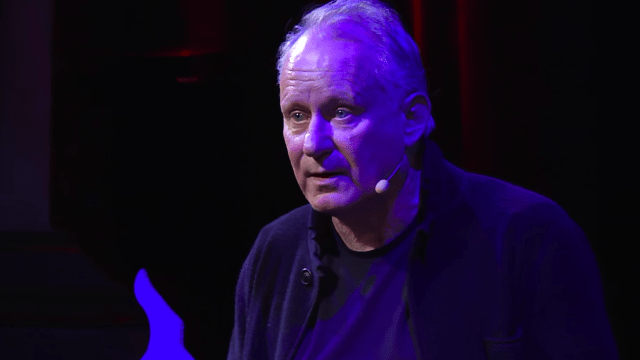While he’s about to debut as Baron Vladimir Harkonnen in Denis Villeneuve’s Dune adaptation, Stellan Skarsgård’s words from a film festival last year have been making the rounds and reminding us of some great points when it comes to money and the film industry.
Every few weeks or so, the denizens of film Twitter (and presumably other social media circles) whip themselves into curious frenzies over what beloved directors of classic films widely regarded as “proper” cinema have to say about present-day Hollywood’s obsession with superhero franchises.
Though little ever comes from this cyclical pattern of mild outrage followed by a return to hype for the Next Big Studio Release, it’s always an interesting reminder of how those who claim to love film the most will always be enraged by it. For those invested in the idea that studios like Marvel and Warner Bros. are “ruining” the film industry by flooding it with stories ripped from comic books, directors like Martin Scorsese, Francis Ford Coppola, and David Cronenberg have become heroic figures rallying against the machine with both their art and their outright criticisms of studios.
But what often gets lost in the rush to celebrate this position — especially in response to Scorsese adopting it — is the reality of how the bulk of the films we spend time discussing and thinking about are the products of studios, which are businesses who are chiefly focused on making money.
This point is something Stellan Skarsgård tried to hammer home during an interview at last year’s Götenberg Film Festival where he shared some thoughts in response to a piece by Scorsese in the New York Times which claimed that Marvel movies aren’t really art. Skarsgård’s comments have been making the rounds online lately in the wake of his director on Dune, Villeneuve, accusing Marvel movies of turning audiences into “zombies.”
But what he said back then is still more than worth considering in a larger, industry-wide context. The real problem, Skarsgård reasoned, isn’t Marvel specifically, or relative upstarts like Netflix, but rather “the fault is that we have for decades believed that the market should rule everything. And the rich get richer, and that is the root of it all.”
The point that Skarsgård was making was that while it’s easy to single out individual studios like Marvel, one of the big reasons it’s able to take up so much room and oxygen is how money and power are being consolidated within the industry at multiple levels. In Skarsgård’s view, many different distribution and cinema companies have been lost to monopolies throughout Hollywood, but the real damage to the industry has come as a result of new leadership that prioritises profit over art.
“They’re run by big corporations that want to have 10% back on their invested capital, which means that as long as they sell popcorn, it’s fine,” Skarsgård said. “That’s why all the mid-range films, the films that are lower than $US100 ($138) million dollar budget, and over $US3 ($4) million dollars, they don’t exist anymore. It’s only $US100 ($138) million dollar films and $US3 ($4) million dollars, and nothing in between.”
This pursuit of profit, Skarsgård argued, is one of the reasons that we’ve seen such a marked spike in original episodic programming from studios in the past few years, but he also said that the same influences would eventually come for the prestige series space as more studios fight for a chunk of it. Clearly, there’s a lot more variety on television and streaming services in terms of what kinds of projects are being greenlit compared to feature films.
But the actor pointed to HBO, which is owned by AT&T, as an example of a studio’s financial priorities getting in the way of art’s development. “[W]hat will happen eventually is that the diversity in terms of voices will end,” Skarsgård said. “HBO is now bought by AT&T, and they’ve already been told that you can’t do what you’ve been doing because what you’ve been doing is, yes, you’ve made money, but you’ve made quality stuff, which means you haven’t made that much money.”
There shouldn’t be any hard and fast rules about how much money a television show or film has to make in order to be considered “good,” similar to how we shouldn’t box ourselves into thinking that only a set number of projects involving superpeople can release in a given year. It’s true that studios keep making the things because they tend to make outrageous amounts of money at the box office, but it’s the last bit that Skarsgård wanted everyone to bear in mind.
“[I]t’s not the fault of Marvel,” Skarsgård said. “It’s the fault of an idea about how the economical systems of the world should work. It’s all fiction. But it’s the fiction that we had for the last couple of decades, [and it] has led to this.”
